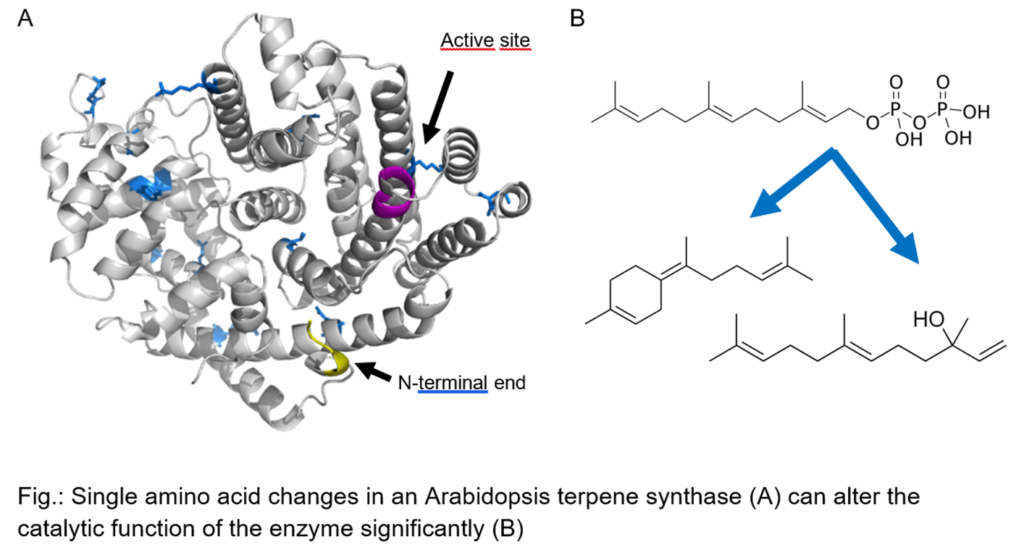Climate-associated functional polymorphisms of terpene synthases in Arabidopsis thaliana
Plants respond to most biotic and biotic cues with the production of complex blends of terpenes. These terpenes are often defense compounds or allow the plant to interact with other organisms. The enzymes responsible for producing the immense diversity of terpenes are the terpene synthases. In Arabidopsis, we identified 11 terpene synthase genes that contain nonsynonymous SNPs associated with the temperature of the plant’s environment. This association suggests a role of terpene synthase polymorphisms in plant survival in diverse environmental conditions.
We will study selected terpene synthase proteoforms resulting from these SNPs. We expect that these proteoforms affect the expression, the catalytic function and and other biochemical characterisitics of the enzyme. We will assess the functional transitions caused by these polymorphisms to elucidate structure-function relationships within the enzymes. By developing a high throughput expression and screening system for the terpene synthases, the evolution of polymorphism will be studied within this gene family. SNPs and their functions will be compared with “artificial” directed evolution approaches to gain insights into the relevant amino acid residues of single-product and multi-product enzymes. The results will give insight into the catalytic flexibility of this enzyme class in Arabidopsis and provide cues for the rational design of terpene synthases. We also expect an increased understanding of the ecophysiological role of terpene products.



